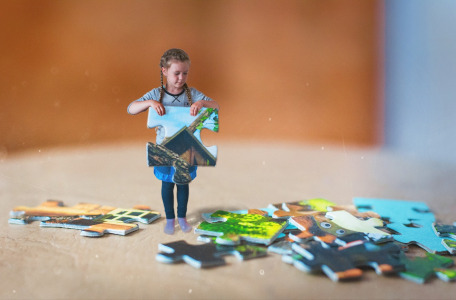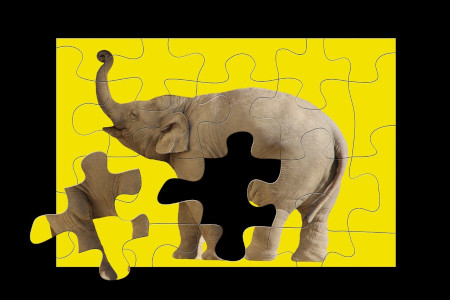Speed puzzling school groups are popping up all around the world. If you are a librarian, teacher or educator, you might be interested in bringing this new sport to your school and community. Even community leaders are looking at speed puzzling school groups for children.

Engaging students and children in speed puzzling at both schools and community centers offers a multitude of benefits. Speed puzzling does combine education with the thrill of a unique challenge.
Speed puzzling not only cultivates essential cognitive skills but also promotes teamwork, critical thinking, and problem-solving abilities. These dynamic activities foster a sense of camaraderie among participants, enhancing social interactions and building lasting friendships. Which is why more and more educational facilities are looking at extra curricular activities as a school club of speed puzzling as a consideration for their young community minds.
Speed Puzzling School Groups Bring Puzzle to the Kids
As an adult, I enjoy the chance to take up the challenge of speed puzzling at a puzzle competition. I assume the kids will feel the same way. And dare I say offer some amazing times with this new-to-them sport. I’ve always wanted to get the kids involved and this is just another great way! I’m all for Speed Puzzling School Groups to be part of afterschool programs, extracurricular activities and community programs in communities everywhere.
Table of Contents
Speed Puzzling School Groups Enhance Learning
Playing jigsaw puzzles as part of speed puzzling is an excellent way for students and children to enhance their learning experience. Jigsaw puzzles stimulate cognitive functions such as spatial awareness, pattern recognition, and memory retention.
As participants work together to solve puzzles within a set timeframe, they develop crucial communication skills and learn to collaborate effectively. These activities create an engaging learning environment that goes beyond traditional classroom methods, encouraging creativity and innovation. Since the Speed Puzzling School Groups are of a younger generation, they might even bring a few tricks to the puzzle table.
The fast-paced nature of these activities keeps participants focused and energized, providing a refreshing break from the academic routine. Schools and community centers can utilize speed puzzling events to promote a positive and fun learning atmosphere, fostering a love for problem-solving and intellectual engagement among students and children.
So why not Speed Puzzling School Groups?
Participating in speed puzzling at school and community centers offers a holistic approach to education, seamlessly blending entertainment with cognitive development.

By introducing children to the joy of jigsaw puzzles in a lively and interactive setting, educators and community organizers contribute to a well-rounded educational experience that not only enhances academic skills but also instills a lifelong love for learning and teamwork. Embracing speed puzzling is a playful yet impactful way to enrich the educational journey of students and children in schools and community settings alike.
How to Start a Speed Puzzling group at your school or library
Starting a speed puzzling group at your school or library can be a fantastic way to promote teamwork, critical thinking, and intellectual engagement. Here’s a step-by-step guide to help you kickstart your own speed puzzling community:
Research and Planning.
Begin by researching the interest level in your school or library community. Gauge whether there’s a demand for speed puzzling activities.
Identify potential spaces within the school or library where events can be hosted. Consider factors like available tables, lighting, and overall ambiance.
Seek Permissions.
Obtain necessary permissions from school administrators or library management to host speed puzzling events. This may involve discussing the benefits of such activities and ensuring it aligns with the institution’s goals.
Gather Resources.
Acquire a collection of jigsaw puzzles of varying difficulty levels. Consider partnering with local puzzle stores or seeking donations to build your puzzle collection. Ensure you have timers or clocks to add the time-sensitive element to the speed puzzling events.
Create a Schedule.
Plan a schedule for your speed puzzling group. Decide on the frequency of events, whether they will be weekly, bi-weekly, or monthly, and choose appropriate timings.
Promote Your Group.
Generate interest by promoting your student speed puzzling group. Utilize bulletin boards, social media, school announcements, or library newsletters to spread the word. Highlight the benefits of participation, such as improved cognitive skills and a fun, social environment.
Host Events.
Organize the first few speed puzzling events. Ensure there are clear instructions on the rules and objectives. Offer handouts of speed puzzle tips to get everyone started. You might want to start with smaller puzzles and gradually increase the complexity as participants become more experienced.
Encourage Participation.
Foster a welcoming and inclusive atmosphere. Encourage students or library patrons of all ages to participate. Consider incorporating friendly competitions or incentives to keep the momentum going.
Document and Showcase.
Document the success stories and memorable moments. Share them through social media, newsletters, or school announcements to showcase the positive impact of the speed puzzling group.
Expand and Collaborate.
As interest grows, consider collaborating with other schools or libraries to expand the reach of your speed puzzling community. This could lead to larger events, competitions, or even regional partnerships.
Why Not Introduce Speed Puzzling to Kids?
Consider helping start Speed Puzzling School Groups in your community. If we work together, it’s possible to create a special experience for a youngster. It’s true you can create a vibrant and engaging speed puzzling group that enhances the learning experience and fosters a sense of community within your school or library.
Educators, librarians and teachers can engaging students and children in speed puzzling at both schools and community centers offers a multitude of benefits, combining education with the thrill of a unique challenge.
